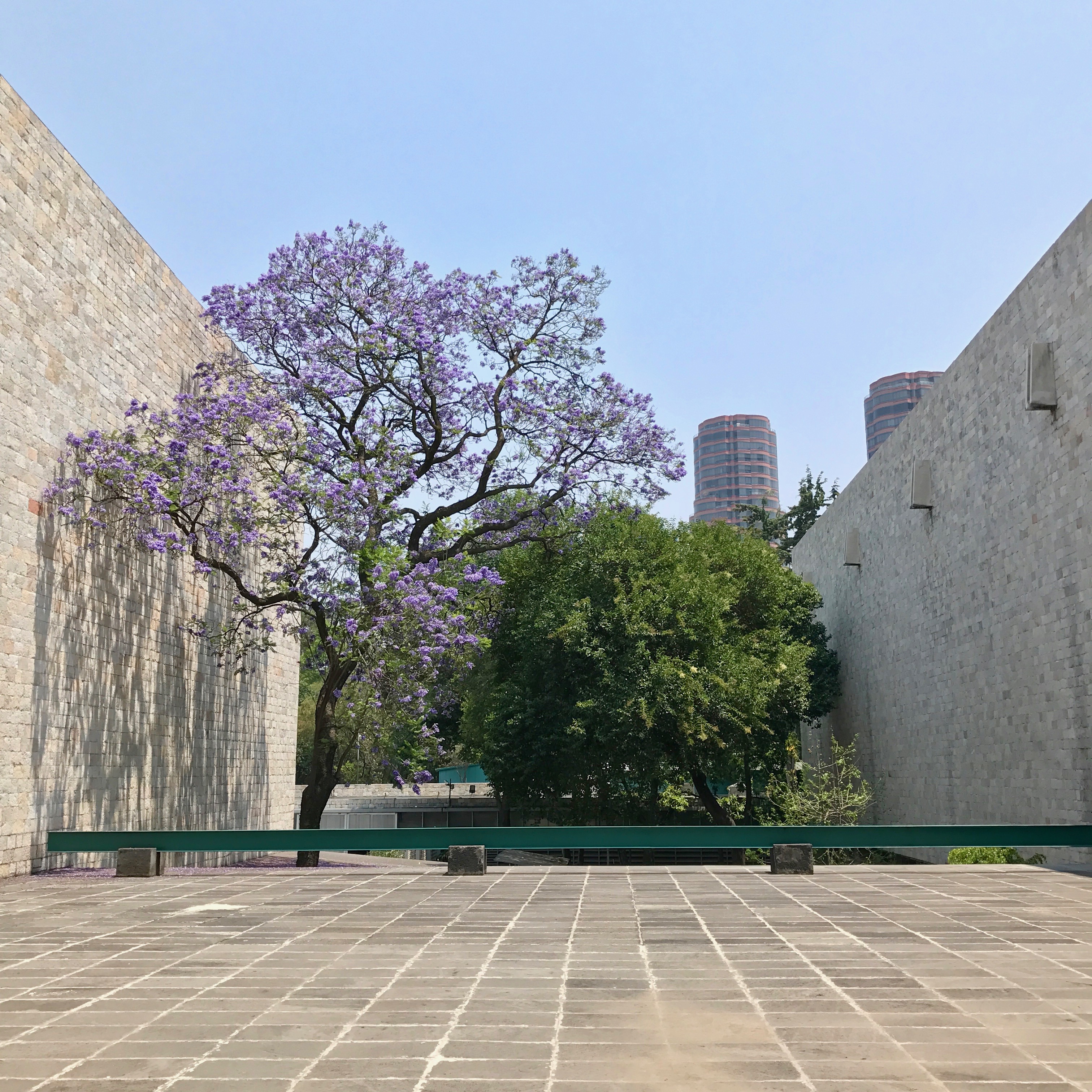
I hadn’t planned to come to Mexico City, but when my program at Esalen fell through due to the storms we had this winter I did a quick whirl through my mental rolodex of places I’d like to go and people I’d like to see. So here I am, staying with an old friend from my summer in Santa Cruz. I’ve experienced every emotion this week- the empowerment and terror of solo traveling, the peace and stress of moving through a new city, the joys and sorrows of being alive. I came here with lots of notes I’d made on things I wanted to write about over the last month, but sitting in Maria’s peaceful apartment this morning, this is what came out of my fingers as I sat down to write (and to wait for Sufjan Stevens tickets to go on sale, if I’m being totally honest :P).
Two things have been surfacing for me lately that I’m working on reconfiguring, both necessitating the release of attachment (which it turns out continues to be amply hard to do).
The first is my tendency- knowing or unknowing- to use stress to motivate myself through my perceived to-do list. On the days I don’t roll out of bed and bike to the gym, I have a few hours before I need to be out the door. And yet, I find it so difficult to relax in my routine. The notion that I should just trust myself to get everything I need to do done makes me anxious. Instead of focusing on making coffee, and then focusing on meditating, etc, I run through the list in my brain, trying to move as quickly as possible. I’m not sure why I’m so afraid of being late- I rarely am. This tension between my mind wanting to get everything done before I run out of time conflicts with the pace my body wants to move at, naturally creating stress. I get attached to the idea that if I don’t finish everything, I’ll be late, and then everything will crash and burn. (My subconscious really has its melodramatic side). I wrote myself a note on an index card that says, “It’s okay to not get everything 100% done. It won’t kill you.” We’ll see how the does for inspiration.
The second is something I’m realizing has been a long term shenpa for me, something that has caused me pain repeatedly. (Worth reading anything by Pema Chodron for more on this). I’m very aware that I try to create a sense of security in my life by planning, which gives me a false sense of control. Taking that idea further though, I’ve realized how much pain I’ve caused myself when I’m applying this to situations of uncertainly. I think it started with watching my parent’s relationship dissolve slowly over many years. As I progressed through my adolescence and teenage years I numbed out my feelings whenever I heard them fighting, turning to music, books, situations that took me outside of my house like summer camp and my first serious relationship. It always broke my heart to leave the seemingly stable “family” communities or dynamics I found among groups of friends at summer camp, and I’d cry the whole way home- from the time I was 12-15. I dealt with hard outcomes by not really dealing with them, and at age 17, when my parents finally announced they were getting divorced, I was utterly devastated.
So I took to assuming the most negative outcomes for uncertain situations, and then trying to prepare myself for them. Unknowingly, of course.
This, coupled with an inability to validate and communicate my needs and feelings (which two years of therapy has begun to finally resolve), has gotten me into a lot of bad situations. If you assume that people are going to disappoint you, that your relationships will fail, that people won’t return the effort you put in- then how can that not become a self-fulfilling prophecy? Attaching to these negative outcomes made me feel like I had the upper hand, that I could act first and not get hurt. Turns out that doesn’t work at all. (Shocking).
I’ve been reading and re-reading two books by Rebecca Solnit recently- A Field Guide to Getting Lost, and The Faraway Nearby (which I think everyone should read). I came across a section in the latter which reads, “Buddhism takes change as a given and suffering as the inevitable consequence of attachment and then asks what you are going to do about it.” She continues later, “The coolness of Buddhism isn’t indifference but the distance once gains on emotions, the quiet place from which to regard the turbulence. From far away you see the pattern, the connections, and the thing as a whole, see all the islands and routes between them. Up close it all dissolves into texture and incoherence and immersion, like a face going out of focus just before a kiss.”
I connected wholeheartedly with these passages as the main focus of the work I’ve been doing through therapy, meditation, acupuncture and efforts of self-care and self-love over the last three years. As I begin to zoom out from my actions and understand what motivated them, I feel aftershocks of pain at the ways I acted and the ways I treated both myself and others. My therapist reminds me that I was young, and my friends remind me I can’t carry guilt for things others don’t want to work through. I’m surprised by the grief I’ve found in these reflections and new perspectives, but I’m sitting with it.
If nothing else, I can be empowered by the lessons I’ve learned, the actions I won’t repeat, and my continued effort to free myself from attachment across the board- however difficult and arduous of a journey that may be.
*

Leave a comment